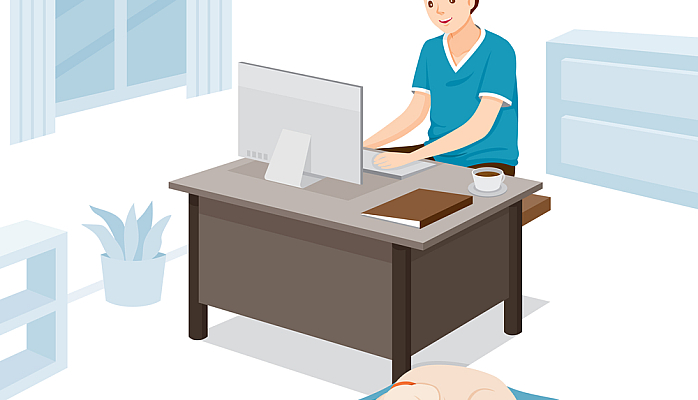
Invest in Real Estate with No Money: Grant Cardone Presents
Despite the fact that conventional wisdom tells us it takes lots of money to get into the real estate investing game, many successful investors start out with little.
One proven way to invest in real estate with no money is through seller financing. With this strategy, you purchase a property with a partner who puts up the down payment and loans you the rest.
Seller Financing
Investing in real estate with seller financing is a great way to acquire properties without using your own money. These arrangements are often used to sell a property quickly or generate passive income, but they can also be helpful to investors who have less than stellar credit or who are looking to purchase a home before retirement.
The most common type of seller financing arrangement involves a mortgage that runs for a fixed term, usually five or 10 years, with a balloon payment due at the end. This allows buyers to purchase homes that would otherwise be out of reach, and it can help them build equity over time as well.
In addition to making homeownership more accessible for those who might not have the credit or cash necessary to qualify for a traditional loan, seller financing can also allow you to take advantage of more flexible interest rates and terms than you could get with a conventional lender. This can be particularly useful if you’re buying a home in an area where traditional mortgages are difficult to secure.
If you’re interested in seller financing, it’s important to understand how this option works and when it makes sense to use it. You should also take into account that this alternative is not for every transaction.
Seller financing can be a useful tool to help you find buyers and close your sale quicker in a tight credit market. However, it comes with some special risks for both sellers and buyers, and it’s best to consult with a real estate attorney or financial advisor before you proceed.
Another way to acquire a property with seller financing is through a junior mortgage. This type of arrangement allows you to purchase a property with a down payment that can be used as a down payment on a new mortgage or to make any other needed repairs.
These arrangements are also helpful to investors who have a lower credit score or who are dealing with irregular income. They can often be negotiated directly with the seller, and you won’t have to go through a bank or other third-party financial institution.
Lease Option
If you don’t have the cash to buy a home, the lease option is an excellent way to invest in real estate without having to save for a down payment. This arrangement is especially beneficial for renters who want to build their credit or have trouble securing a mortgage loan because of poor credit.
The lease option is a type of contract that allows property owners to offer their tenants the opportunity to purchase the house at current market prices, which will be set when the lease ends. The owner charges the tenant a premium in addition to the normal monthly rental rate for the lease, which goes towards the down payment that will be required to buy the house at the end of the lease term.
This is a common strategy for landlords who have difficulty selling their homes in the current market and for tenants who do not have a lot of money to make a down payment on a new home.
However, the lease option can also be a risky arrangement for both parties, as it allows tenants to stretch themselves too thin and leave themselves vulnerable to financial difficulties in the event of unforeseen events that arise during the rental period.
A good lease option agreement should have several key provisions to protect both parties. Firstly, make sure the agreement includes an appraisal contingency.
An appraisal is necessary to determine the exact value of the property before the purchase and sale process can go through. It will also allow buyers to know how much they can afford to pay for the home.
Another crucial aspect of a lease option agreement is the monthly premium credit rent, which goes towards the down payment for the house at the end of the lease term.
Some banks might not accept the amount of premium credit rent paid above the standard rent to apply towards a down payment, so it’s important to check with your lender.
It’s also a good idea to maintain meticulous records of your monthly rental payments throughout the lease term. This will be essential for your application for a mortgage at the end of the lease.
Trading Houses
Investing in real estate can be a great way to build wealth. Whether you’re a renter or homeowner, there are many ways to get started. One of the most popular options is to buy real estate with no money down.
This type of financing is typically aimed at first-time investors and people with less-than-perfect credit scores. The key is to understand how your score affects your investment strategies and financing options.
In addition, learning about your credit score and how it influences your overall financial situation can help you make smarter decisions when deciding on which types of properties to purchase. This will help you avoid some of the common pitfalls associated with buying real estate with no money down.
Another strategy is to purchase real estate using a rent-to-own lease option. This strategy allows you to purchase a property for the amount that the current owner is willing to sell it, rather than paying the full market value.
Purchasing a property like this can be a good way to earn a steady income while building your credit score and capital.
When purchasing a property with no money down, it’s important to have a strong network of investors. These individuals can help you identify opportunities for deals that you might not otherwise have access to. They can also help you negotiate a fair price for the property.
If you’re looking to expand your investment portfolio, consider starting a real estate trading house. This is a business that specializes in international trade and can help you start a successful business in a foreign country.
These businesses provide a wide range of services, such as customs clearance, international transportation and shipping, foreign exchange, insurance, and more. They can also help you set up your business and provide consulting services.
They can also assist you in identifying and launching new products in a foreign market. The best trading houses have a broad and diverse team of experts in international business.
These companies are often hired by large manufacturers to facilitate the export and import of their products into and out of a certain market. They also protect the manufacturer from various risks related to international trade.
However, it’s worth considering the following factors when determining whether to hire a trading house:
Rental Income
While there are many different ways to make money in real estate, rental income is often the best option for investors who want to build long-term wealth. It doesn't require as much upfront investment as some other methods, and it provides a reliable source of cash flow.
If you own rental property, it's important to know how to report your rent on your tax return. Depending on your method of accounting, you may report it on a cash basis or an accrual basis. In either case, the amount of income that you receive must be reported on your income tax return in the year it is received.
Most individuals use the cash basis method, which requires them to report income as it is received and expenses as they are paid. However, some businesses use the accrual method, which counts income when it is earned and deducts expenses when they are incurred.
As a landlord, you can deduct some or all of your costs to operate the rental property as a business expense. These costs include mortgage interest, maintenance, repair, and property taxes. You can also deduct other expenses that are related to the operation of the property, such as owner's insurance, utilities, and property management fees.
You can also deduct some or all of the amounts that your tenant pays for utilities and maintenance. This includes water and sewage bills, and any funds your tenant pays for cleaning or painting the rental property in exchange for free rent.
Finally, you can deduct some or all of the deposit that your tenant pays for the first and last month's rent. This is a great way to get a head start on your rental business and can help you generate more rent in the short term.
Whether you are a first-time landlord or an experienced one, it's important to keep track of your rental income. You can do this with a spreadsheet, personal finance software you already have, or specialized software designed for real estate investors.
A good rental income spreadsheet is a vital tool for real estate investors, as it allows you to track and analyze your property's finances and generate reports that you can use to manage your business. The spreadsheet should be easy to maintain and sync with your bank account so that you can easily manage your properties and make informed decisions about your investment strategies.












Community Discussion